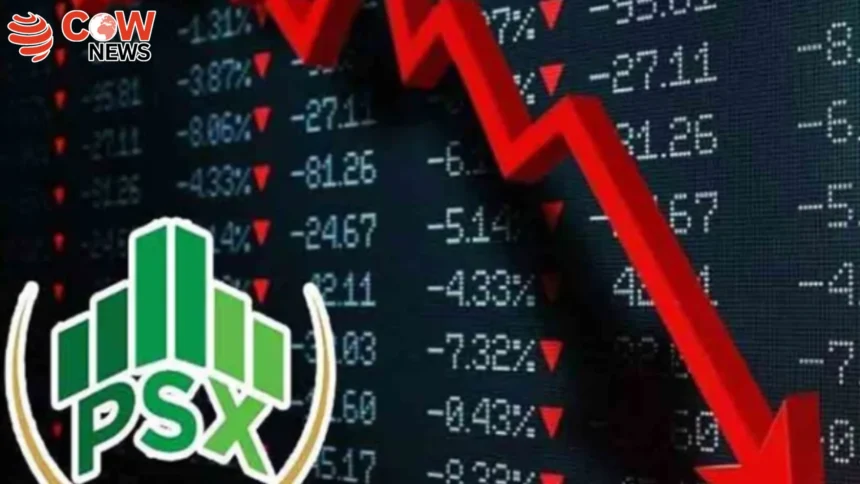Islamabad( The COW News Digital)Pakistan’s stock market suffered a severe shock on Monday as geopolitical tensions and domestic economic uncertainty combined to trigger a massive sell-off. The KSE-100 Index plummeted by 4,654.77 points, or 2.85%, closing at 158,443.42, wiping out over Rs 5 trillion in market capitalization. Nearly 78% of traded shares declined, reflecting widespread investor panic.
Several factors contributed to the downturn, including stalled negotiations with the International Monetary Fund (IMF) over a staff-level agreement, uncertainty surrounding the release of the next tranche of the IMF loan program, and escalating border clashes with Afghanistan. The market reaction intensified following reports of 23 Pakistani soldiers killed and more than 200 militants neutralized in cross-border attacks.
Investors also reacted to the delisting of multinational companies, increased offloading of shares by foreign and institutional investors, and internal political instability. The sell-off extended across multiple sectors, including banking, oil and gas, and cement, with the KSE-100 Index briefly dropping 5,420 points during the trading session.
Despite sporadic buying in certain sectors toward the end of the day, the overall trend remained negative. Notable losses were seen in major stocks, including Bank Al Habib (down 5.19%), Engro Holdings (down 3.32%), and Lucky Cement. K-Electric recorded the highest trading volume with 197.3 million shares exchanged.
Analysts noted that the market had already lost 9,500 points over the past six days, largely due to geopolitical uncertainty and weak macroeconomic indicators. Waqas Ghani, Head of Equity Research at JS Global, said the sustained selling across banking, energy, and cement sectors reflected investor nervousness over both domestic and regional developments.
Ahmad Shiraz of K-Trade Securities added that pre-existing economic pressures, potential changes in monetary policy, and stringent IMF conditions had already created a fragile market environment, which was further exacerbated by recent terror attacks and domestic protests, including those by TLP.
The total trading volume reached 1.36 billion shares, with Shariah-compliant stocks making up 65% of the traded value. Foreign investors purchased shares worth Rs 617.1 million, indicating selective buying amid the broader sell-off.
Market experts suggest that stability will largely depend on improvements in security conditions and progress in IMF negotiations. Without these factors, investor confidence may remain fragile, prolonging the period of uncertainty in Pakistan’s financial markets.







